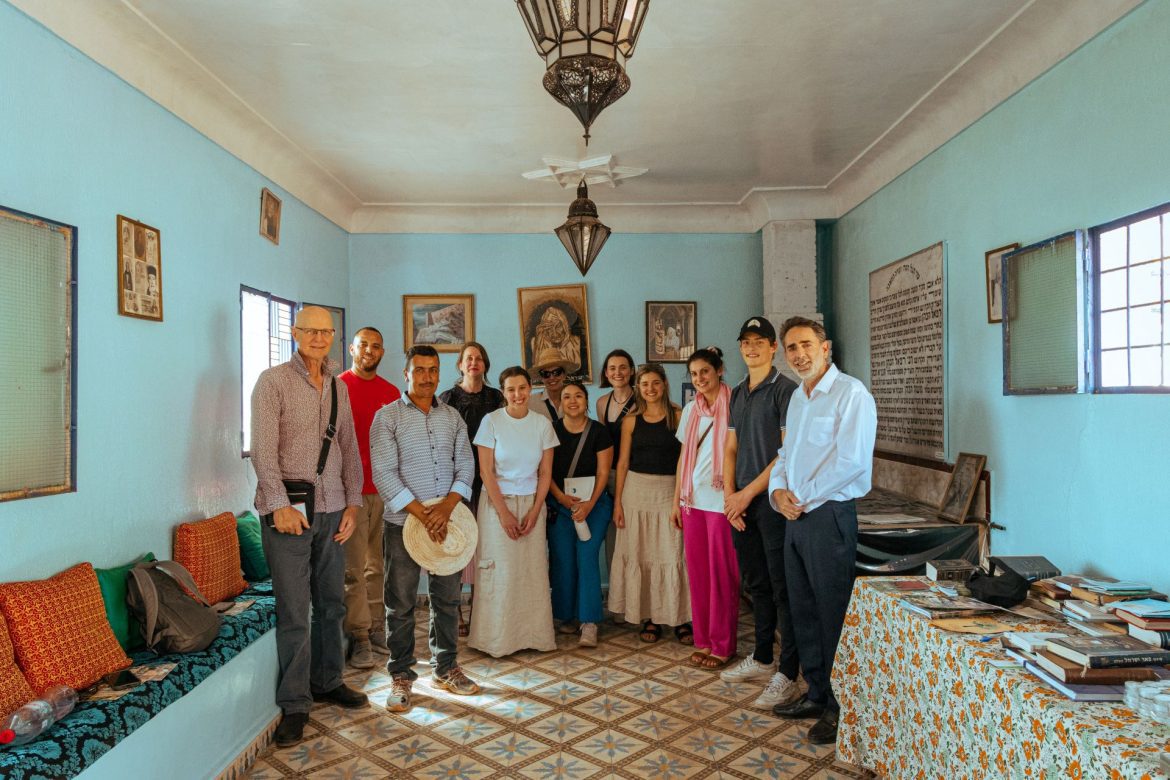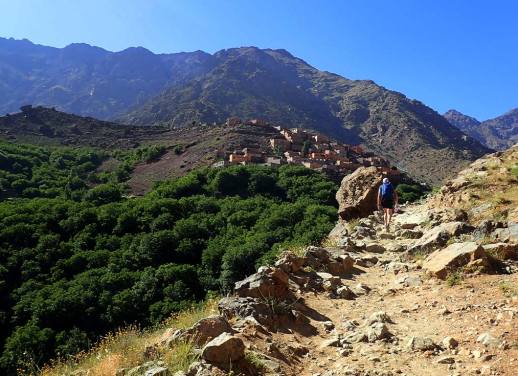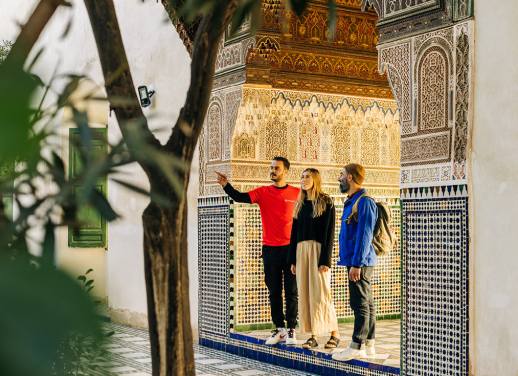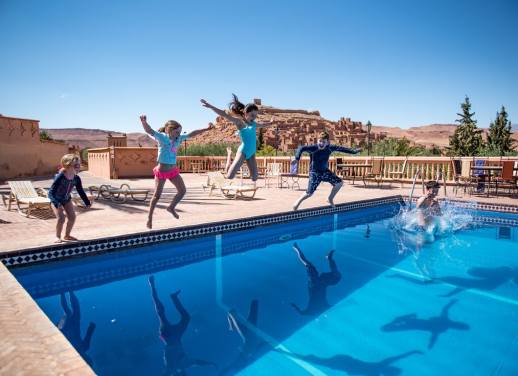In a 700-year-old Jewish cemetery near Marrakech, communities come together to build a sustainable and shared future by planting trees with the High Atlas Foundation’s House of Life project.
I never thought I’d be in the same room as a saint. That’s partly because I’m not a religious person, and then it’s not exactly a common occurrence to bump into one these days. Let alone a saint who draws visitors from inside and outside Morocco.
There I was in Akrich, just 30 minutes outside Marrakech, in a 700-year-old Jewish cemetery, face to face with the embellished shrine of Rabbi Raphael Hacohen.
A saint believed to have healing powers, Hacohen’s grave attracts Jewish pilgrims from around the world, many seeking his blessing. His story is one that cuts across faith. It’s not just the Jewish community that comes here. Muslims and Christians also visit the tomb to pay their respects.
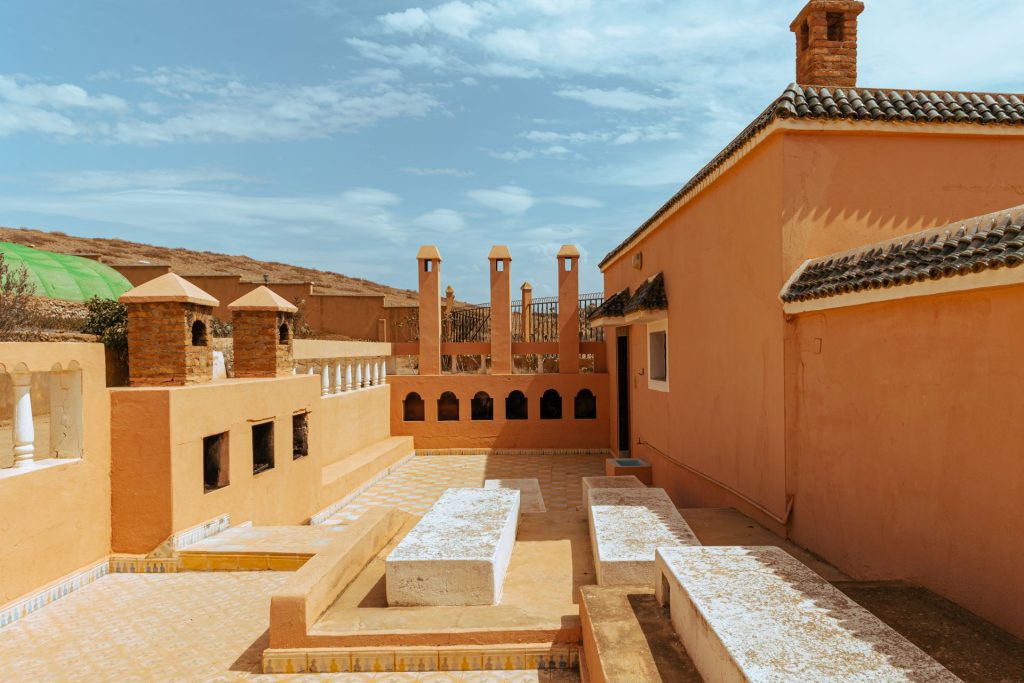
Now, this centuries-old site is home to the High Atlas Foundation and their House of Life project. A collaboration that’s driving this shared sacred space into the future in an innovative way.
Since 2012, a small team of 60 activists have been implementing efforts to repurpose the grounds into urban farming nurseries for the local community to plant and grow organic fruit trees.
As one of the world’s most vulnerable regions to climate change, Morocco needs more than one billion new trees to fight back against the threat of deforestation, erosion and food and water shortages. Currently, less than two per cent of the country has tree coverage.
By 2024, four million trees will grow here thanks to this gift of land lent in outright perpetuity from the traditional Jewish owners, says Dr Youssef Ben-Mir, president and co-founder of the High Atlas Foundation.
This partnership between the Jewish communities and neighbouring farming communities who are predominantly Muslim is about more than preserving history and heritage. It’s about securing a sustainable, shared future as well.
‘After World War Two, there were more than 300,000 Jewish people in Morocco,’ Youssef explains. ‘Today there are less than 2,000, but hundreds of remaining cemeteries and synagogues. How does a community preserve these holy institutions without a physical presence?’
‘The grounds have always been respected, but to give them new utility provides greater energy towards preservation. It moves the conversation forward from past identity to planning for a shared future.’
The vision for this future is one of unique inter-religious solidarity. It achieves multiple outcomes through prosperous collaboration – mitigating the effects of climate change, helping to alleviate rural poverty, and preserving cultural legacy.
With the House of Life project, the High Atlas Foundation is already on the way to securing it.


As of 2023, the High Atlas Foundation supports and maintains 15 tree nurseries in Morocco. In just one year, more than one million trees have been planted, generating stable employment for more than 5,500 farming families.
The site also provides a space for ongoing interfaith dialogue between different youth groups and students, unpacking questions of identity.
As I place my hand on Raphael’s shrine, embracing the spirituality of my surroundings, Youssef reads the subscript written on the wall.
‘This is a holy place where you are standing, because he is holy.’
He explains that House of Life is the literal translation of cemetery in Hebrew, and I nod, thinking about all the ways this one block of dry land is breathing new life into centuries of tradition.
A new not-for-profit partner to the Intrepid Foundation, the High Atlas Foundation will receive donations from Intrepid on behalf of its travellers. Intrepid also plans to educate travellers about the foundation’s work and efforts in Morocco. Adocacy will help contribute towards the foundation’s conservation goals and cultural preservation.
‘Morocco wants community movement and empowerment. If you can create the financial engine, then you can really achieve anything,’ Youssef adds.
This much is clear – I might be standing in a room with a saint, but I also feel like I’m standing at the entrance of a gateway that will lead to a sustainable, shared future for generations to come.
Learn more about the work High Atlas Foundation is doing and discover Intrepid trips to Morocco here.

